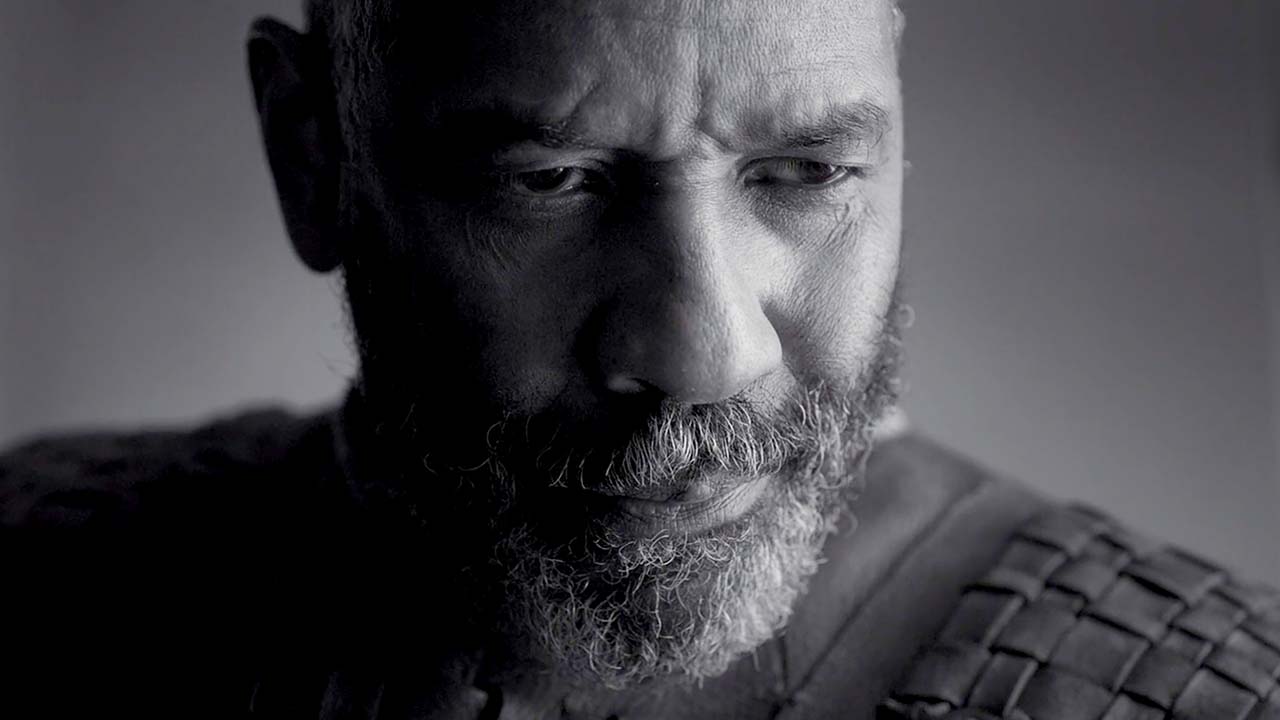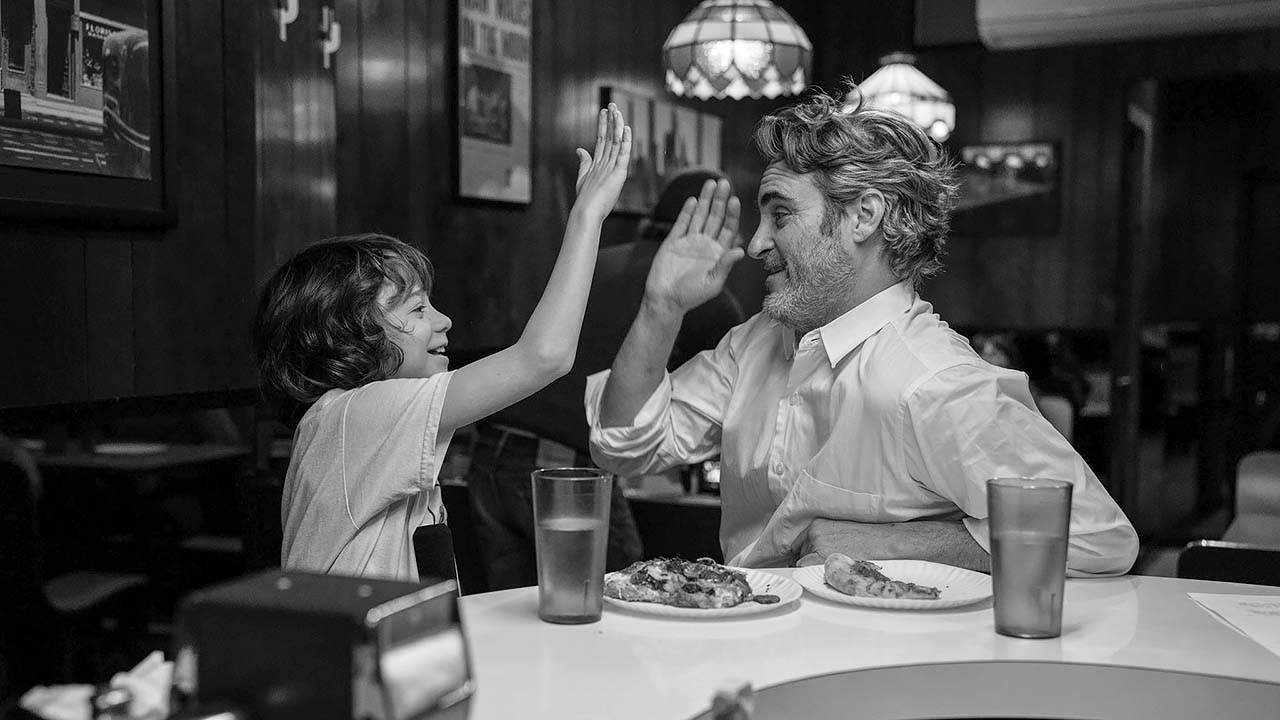Susan Granger At The Movies

The Tragedy of Macbeth

As a first-time solo director, Joel Coen takes a sparse, stylized look at one of Shakespeare’s most compelling plays, “The Tragedy of Macbeth.”
Filming in austere black-and-white, he presents an abstract physical world that’s filled with deep, geometric shadows, sharp angles and bleak walls, focusing on an ambitious middle-aged couple, determined to usurp political power in medieval Scotland.
The bloodthirsty tale begins with General Macbeth (Denzel Washington) victorious after quelling a rebellion against King Duncan (Brendan Gleeson), who subsequently names his son Malcolm (Harry Melling) Prince of Cumberland and heir to the throne.
For his valor, Macbeth is made Thane of Cawdor, fueling a treacherous desire for even greater recognition. Heading home with his comrade Banquo (Bertie Carvel) as cackling crows circle overhead, weary Macbeth has a supernatural encounter with shapeshifting, soothsaying witches (embodied by British contortionist/actress Kathryn Hunter), who cryptically address him as “King hereafter.”
Across the moors, Lady Macbeth (Frances McDormand) relishes this propulsive prophecy, concocting a ruthless regicide plot. Then when Lord Macduff (Corey Hawkins) flees to England with Duncan’s son Malcolm, Macbeth takes twisted revenge by killing Macduff’s wife (Moses Ingram) and children. “Blood will have blood.”
But manipulative Lady Macbeth’s scheming treachery takes its toll, driving her into sleepwalking madness, alarming her courtiers, including the doctor (Jefferson Mays), who observes, “Unnatural deeds do breed unnatural troubles.”
For his first foray into solo directing, Joel Coen evokes the familiar noir concept of greed and wealth leading to betrayal and death that’s characterized his previous work (18 films including “No Country for Old Men”) with brother Ethan.
Coen’s ensemble delivers at a superlative level that should lead to Oscar nominations. Working with set designer Stefan Dechant, French cinematographer Bruno Delbonnel stresses surreal, theatrical minimalism, while Carter Burwell delivers an ominous orchestral score.
Historically, there have been many screen adaptations, including Orson Welles’ in 1948, Akira Kurosawa’s “Throne of Blood” in 1957, Roman Polanski’s in 1971, and Justin Kurzel’s in 2015.
On the Granger Gauge of 1 to 10, “The Tragedy of Macbeth” is an inspired, audacious 8, streaming on Apple TV+.
C’Mon C’Mon

Writer/director Mike Mills’ turbulent new family melodrama “C’Mon C’Mon” delves into the trials and tribulations of parenthood, encompassing its inherent joys and overwhelming responsibilities, including choosing between self-interest and caring for a child.
Living in a small Chinatown apartment, Johnny (Joaquin Phoenix) is a New York radio journalist heading a small team of interviewers who travel around the country asking young people probing questions about their aspirations, what they think of the world around them, their uncertainties and what needs to change.
When his estranged sister Viv (Gaby Hoffman) must cope with a mental health crisis involving her bipolar husband (Scoot McNairy), Johnny flies to Los Angeles to care for Jesse (Woody Norman), her imaginative, precociously perceptive nine-year-old son.
Having absorbed Viv’s self-help exercises and vocabulary, vulnerable Jesse has been taught to express his feelings openly, leading to insightful cross-generational communication.
The bittersweet plot revolves around the transformation that happens when Johnny, who’s single and has no children, steps into the avuncular role.
Inspired by his own parenting experiences with filmmaker Miranda July (“Kajillionaire”), Mike Mills shot the script in sequence, working with Irish cinematographer Robbie Ryan to film in luminous black-and-white, tracing how Johnny and Jesse bond — with music by Bryce and Aaron Dessner of The National.
Previously in “Beginners,” Mills explored his poignant relationship with his father who came out late in life, and in “20th Century Women” he recalled his mother and sister who raised him.
Bearded and considerably heavier than he was as the Oscar-winning “Joker,” Joaquin Phoenix delivers a quiet, gently thoughtful, emotionally satisfying performance, while British newcomer Woody Norman masters an authentic American accent.
FYI: One of the young people interviewed is Devante “D-Man” Bryant, a nine-year-old who was later killed in a shooting and to whom the film is dedicated.
On the Granger Gauge, “C’mon C’mon” is a sensitive, stylistic, soft-spoken 7, streaming on Prime Video.
Ghostbusters: Afterlife

If you chose not to risk Omicron by going to the theater, now you can stream “Ghostbusters: Afterlife,” as a new generation battles the spirit world.
Directed by Jason Reitman, son of Ivan Reitman who directed the first two 1980s movies, it’s a continuation of the story from “Ghostbusters” and “Ghostbusters II,” including original cast members Bill Murray, Dan Aykroyd, Ernie Hudson, Annie Potts, and Sigourney Weaver.
This time the franchise focus is on teenage Trevor (Finn Wolfhard of “Stranger Things”) and his younger, science-loving sister Phoebe (Mckenna Grace) who have moved with their single mom (Carrie Coon) to a spooky farm in Summerville, Oklahoma, that was owned by their eccentric, gadget-wielding grandfather, Egon Spengler (the late Harold Ramis).
When Trevor gets a job at the local drive-in burger joint and develops a crush on Lucky (Celeste O’Connor), Phoebe enrolls in a summer school course taught by amateur seismologist Gary Grooberson (Paul Rudd). There, she befriends Podcast (Logan Kim), so-named because he documents every moment of his life.
And when their goofball adventures — capturing demonic Muncher after razing the nearby town — result in them winding up in jail, Phoebe requests to make one phone call, reaching out to Ray Stanz (Dan Aykroyd) at Ray’s Occult Books.
Once again, the young protagonists must face the forces of the ageless demonic deity known as Gozer (embodied by Olivia Wilde), along with the Gate Keeper and Key Master.
As co-writer with Gil Kenan, Jason Reitman inserts several nostalgic nods to his dad — like having the town’s movie theater playing “Cannibal Girls,” the first independent horror picture his dad Ivan ever directed.
Reitman reinstates Ray Parker Jr.’s iconic theme song, and the VFX department has duly recreated Terror Dogs and the minion-like Mini-Pufts, referencing the original Stay Puft Marshmallow Man, along with metal-gobbling Muncher, replacing Slimer.
On the Granger Gauge, “Ghostbusters: Afterlife” is a blandly familiar 5, ghoulishly streaming on Amazon Prime, Vudu and YouTube.
 Susan Granger is a product of Hollywood. Her natural father, S. Sylvan Simon, was a director and producer at M.G.M. and Columbia Pictures. Her adoptive father, Armand Deutsch, produced movies at M.G.M.
Susan Granger is a product of Hollywood. Her natural father, S. Sylvan Simon, was a director and producer at M.G.M. and Columbia Pictures. Her adoptive father, Armand Deutsch, produced movies at M.G.M.
As a child, Susan appeared in movies with Abbott & Costello, Red Skelton, Lucille Ball, Margaret O’Brien, and Lassie. She attended Mills College in California, studying journalism with Pierre Salinger, and graduated from the University of Pennsylvania with highest honors in journalism.
During her adult life, Susan has been on radio and television as an anchorwoman and movie and drama critic, syndicating her reviews and articles around the world, including Video Librarian. She has appeared on American Movie Classics and Turner Classic Movies. In 2017, her book 150 Timeless Movies was published by Hannacroix Creek Books.
Her website is www.susangranger.com. Follow her on Twitter @susangranger.
